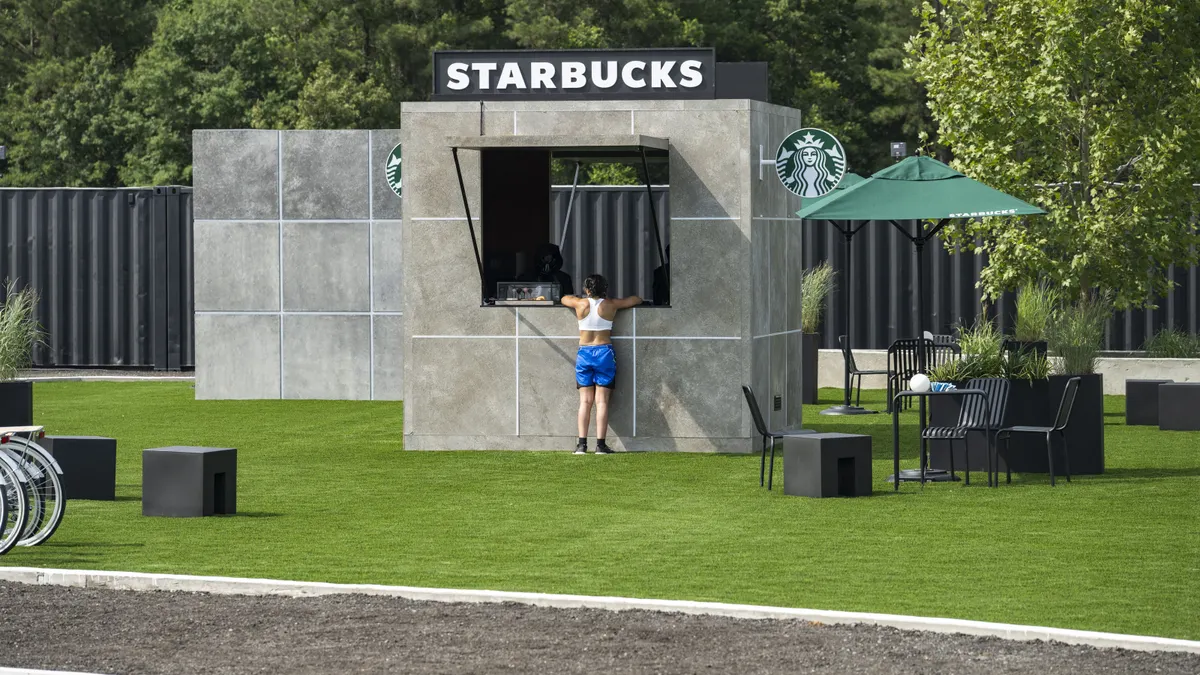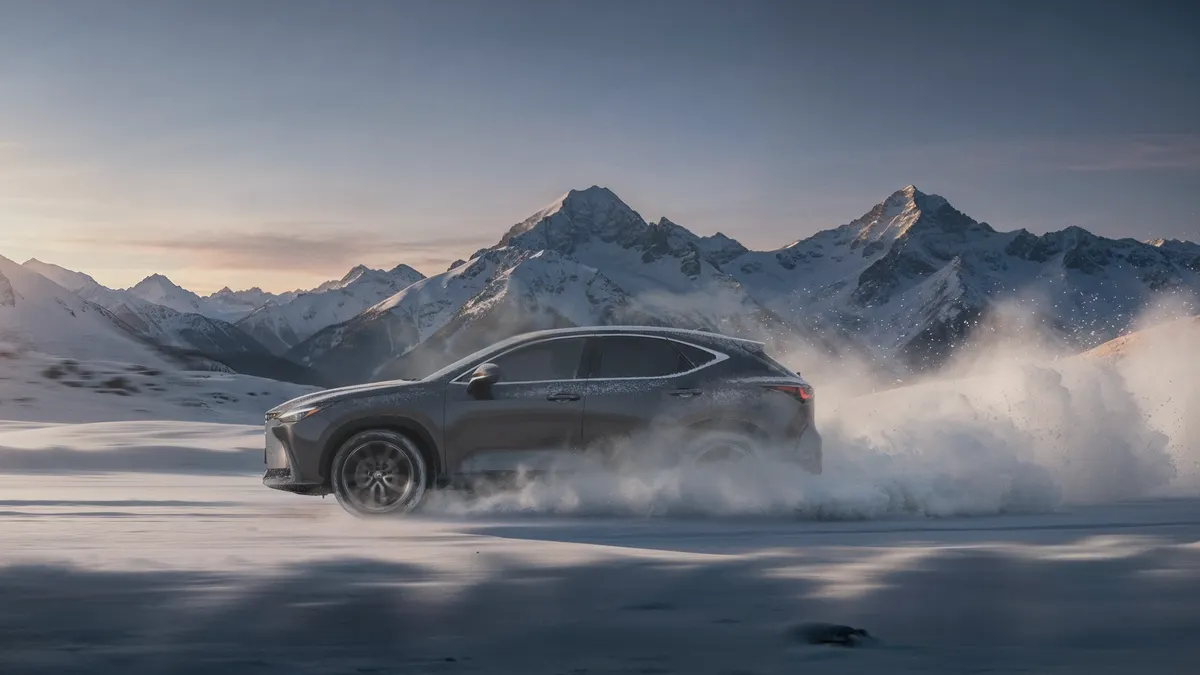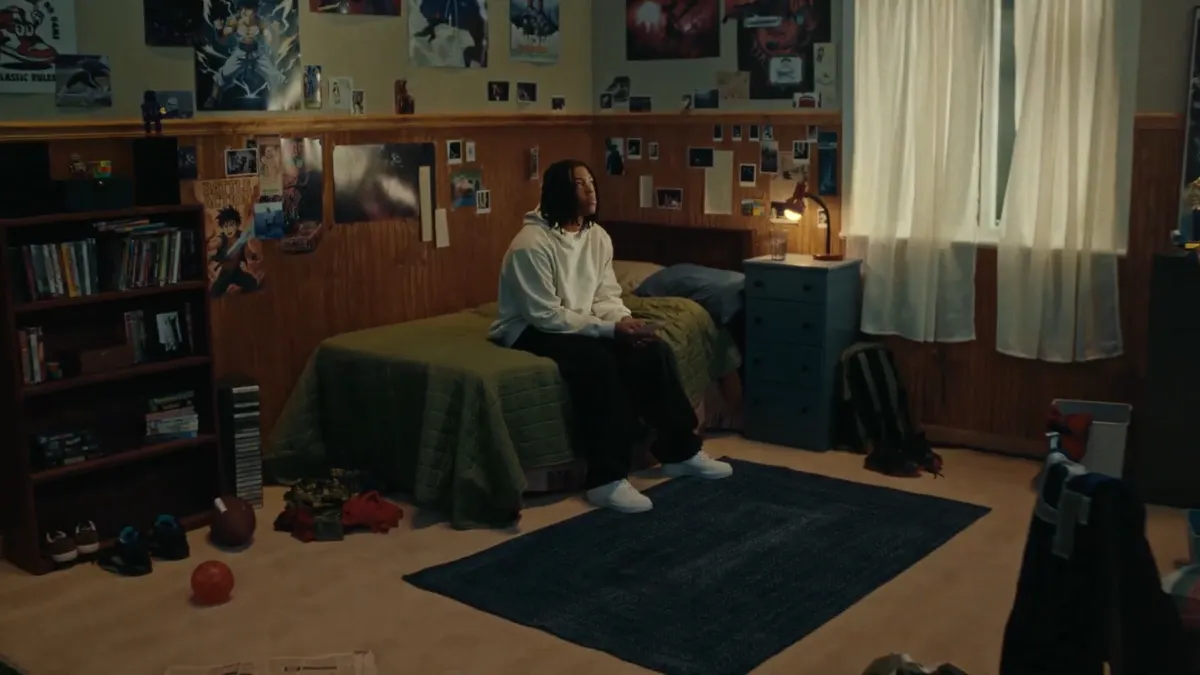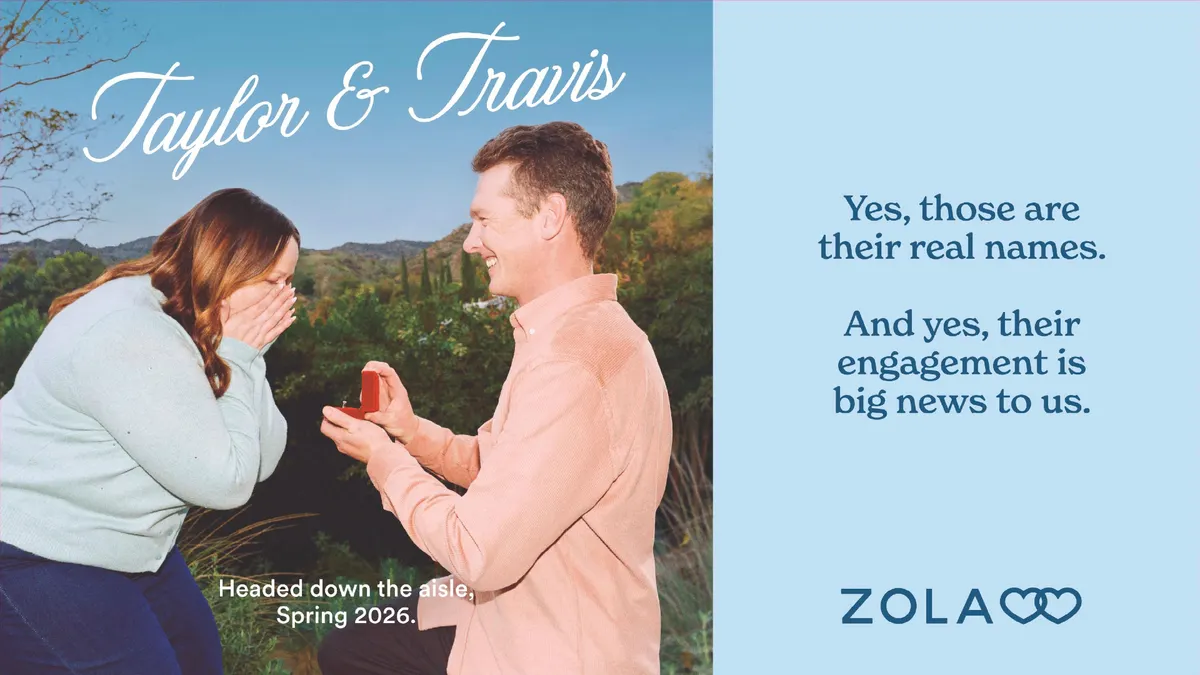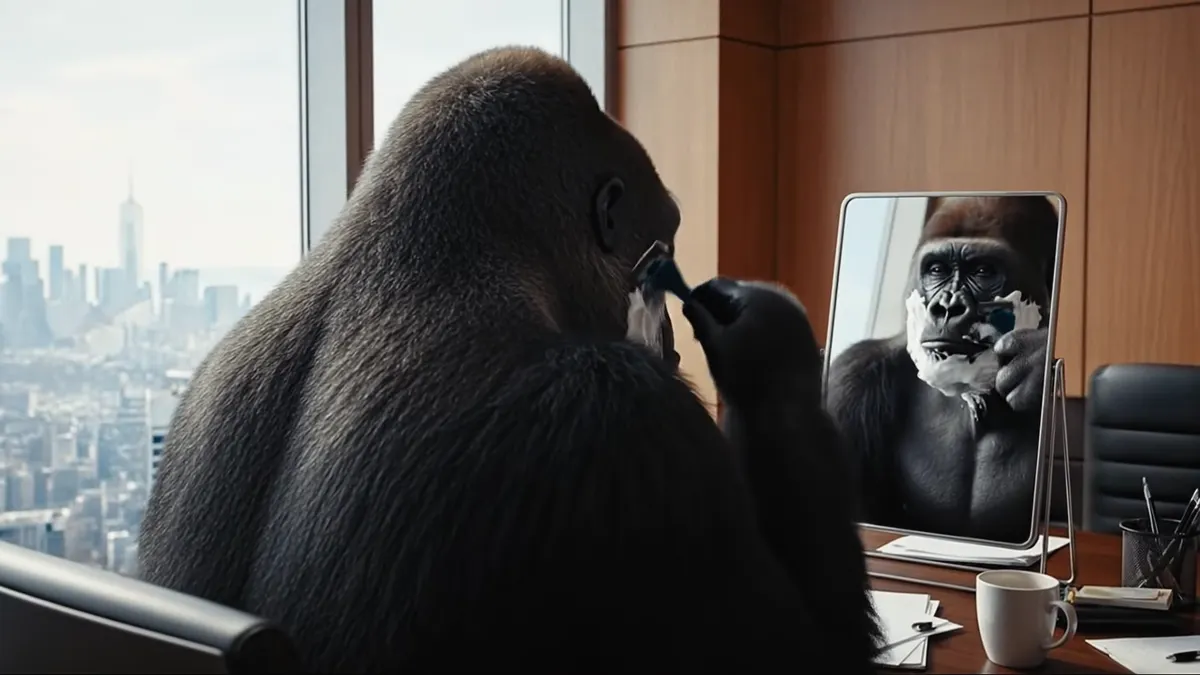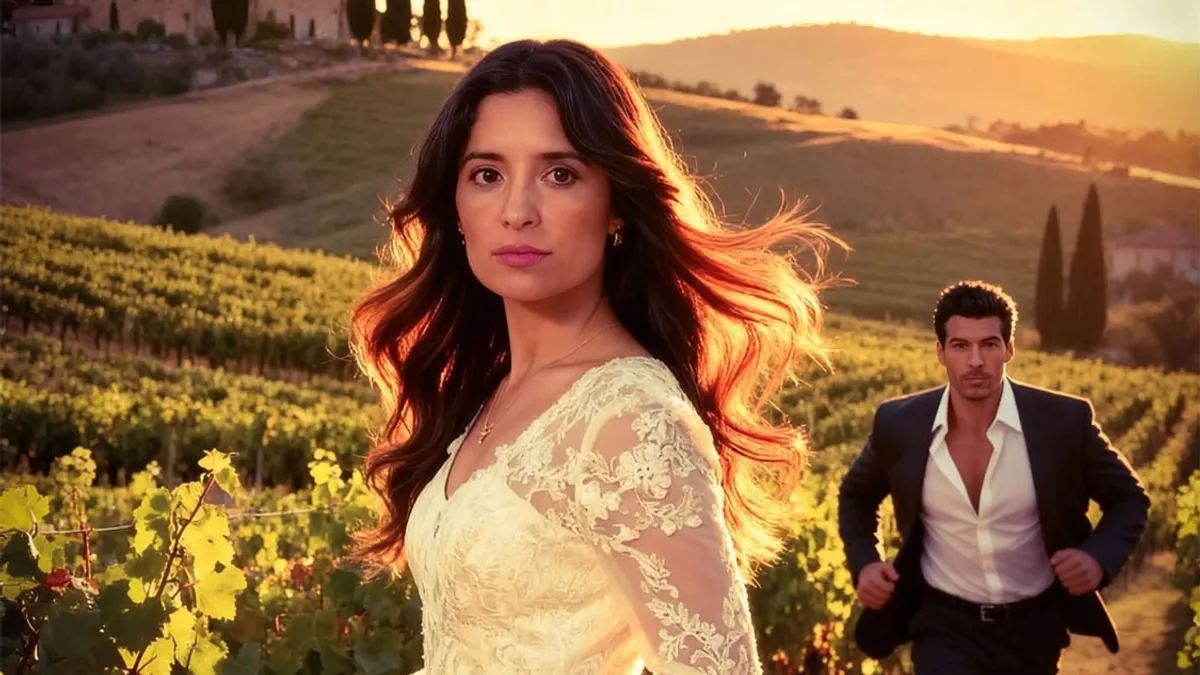For years, analysts have eulogized the jingle, those musical catchphrases that underpinned marketers' efforts for decades. But while the jingle might be considered dead, the era of branded music is just beginning, as advertisers increasingly tap mainstream artists — not just to pop open a can of Pepsi like Britney Spears — but to craft full-length original songs for their campaigns, such as Migos for Mountain Dew or Kelly Rowland for Dove.
"It's more critical than ever that brands consider their audio strategies ... and music is clearly a key part of that," Lauren Nagel, Pandora's VP and executive creative director, told Marketing Dive. "There's a really natural connection for marketers to start to see music as an additional pathway of communication and expression of their own brand in order to reach consumers."
Nagel noted a Nielsen survey that found 75% of Americans chose music as their top form of entertainment, surpassing TV (73%). Marketers are listening to that consumer interest, as a slew of recent campaigns have seen them enlist pop stars, R&B singers and rappers to write and perform original songs.
"There is this kind of tendency to build a musical identity and partner with well known artists," Steve Milton, co-founder of sonic-branding agency Listen, told Marketing Dive. "The challenge that you have is you're leaning on the brand of that artist, and so to build a brand asset, it's like you're going into partnership mode off the bat."
"I think there can be a symbiotic or reciprocal relationship happening there that actually is not selling out, but adds value to both sides."

Steve Milton
Listen, co-founder
While those types of partnerships have existed for years, the relationships between advertisers and artists have changed in the three decades since Neil Young sang, "Ain't singing for Pepsi / Ain't singing for Coke / I don't sing for nobody / Makes me look like a joke." For many cutting-edge pop players, teaming with a brand no longer represents a betrayal of credibility and authenticity.
"I think that it's something that's become advantageous for both the artist and the brand. It used to be that as an artist, you wouldn't want to sell out and be attached to a brand, and I think now there's so much that both can get out of each other," Kelly Bayett, creative director and partner of music and sound studio Barking Owl, told Marketing Dive.
"I think there can be a symbiotic or reciprocal relationship happening there that actually is not selling out, but adds value to both sides," Milton added.
Authenticity is key for brands and bands
This synergy is seen in successful, well-received musical branding campaigns. Bayett points to Oreo's recent "Stay Playful" campaign, which enlisted rapper Wiz Khalifa for an original song, "Playful 4 Life," and an ad that featured him playing with his five-year-old son.
"The Wiz Khalifa-Oreo piece works really well because they showed him at home with his own child. It's a side of him you never get to see, it's very playful and great, and the song is a song that he would do," Bayett said. "Because that whole experience is so authentic, you're watching it, you're listening to the song, you're buying the brand, you love everything that that spot represents."
Authenticity was a key factor in one of the most memorable musical campaigns in recent history: Expensify's "You Weren't Born to Do Expenses" Super Bowl spot, which revolved around a comedic, scannable music video starring rapper 2 Chainz and notched the highest positive sentiment rating of all Super Bowl advertisers, according to mar-tech platform 4C. (Barking Owl worked on the campaign, alongside creative agency JohnXHannes New York.)
The "Expensify This" song found 2 Chainz rapping about seafood towers, a marble emoji statue, a jet ski, and a diamond football, among other things — the type of conspicuous consumption that wouldn't be out of place in his own songs. Plus, it was produced by Mustard, a hit-making hip-hop producer who ensured the song would sound like something on the radio, and the video (which has more than 12 million views on YouTube) was directed by Biscuit Filmworks' Andreas Nilsson, who had helmed a previous 2 Chainz music video.
"That one works great, because he's kind of making fun of it all a little bit," Bayett said. "It's very true to who he is as an artist, and I think that it's the only way that something like that works."
However, when musical branding isn't crafted with artistic authenticity in mind, the campaigns suffer.
Lay's in February teamed up with pop singer-songwriter Bebe Rexha to promote three new chip flavors. As part of the effort, Rexha — a Grammy nominee who's appeared on "The Voice" and "American Idol" — wrote an original song, "Right Here, Right Now," and remixed it into pop, hip-hop and rock versions, which Lay's said corresponded with flavors — Electric Lime and Sea Salt, Flamin' Hot Dill Pickle and Beer Cheese — that were "inspired" by the genres.
The campaign was not particularly well received; Lay's video has just over 5,000 views on YouTube.
"I don't believe that [Rexha] would write a song about dill pickles that are hot," Bayett said. "It's harder for me to buy into it because it doesn't feel authentic to her. She is very cool. She's very smart. She's a songwriter. She's super savvy, and they made her [look like] a very giggly little girl, and you don't really get the depth of her."
In addition, as compared to Expensify's homage (or parody) of 2 Chainz's music, Lay's played it serious, without toying with the inherent silliness of an accomplished songwriter singing about potato chips. While the campaign seemed to have younger consumers in mind, Bayett says it failed to acknowledge that young people who've been marketed at constantly for their entire lives are too savvy to be sold to in such a transparent way.
"Sound is a language of emotion… It's highly scientific, the physiological and psychological impact of sound," Pandora's Nagel said. Instead of figuring out what hip-hop has to do with a lime chip, she explained, marketers should focus on how the song makes consumers feel and how that feeling will lead to action.
"Sound is a language of emotion… It's highly scientific, the physiological and psychological impact of sound."

Lauren Nagel
Pandora, VP and executive creative director
"[Some brands are] only looking at it top level: 'Oh, people like Bebe Rexha and so we'll have her make a song for our chips and it'll be really fun.' It's not really fun, I hate to tell you guys, we're not buying it!" Bayett said with a laugh.
Targeting a generation without labels or genres
The genre-minded remix looked to capture listeners, no matter their preferred style of music. Similarly, Juicy Fruit in April attempted to revive its iconic jingle, remixing it as pop, hip-hop, country and R&B versions, in line with the top genres on streaming services. Ironically, this focus on genre that aims to engage Gen Z is particularly poorly suited for the cohort.
"Everyone's going to go after the kids, right? But when you think about the generation, music listening is very similar to what's happening across Gen Z culture, that they are label-less, they are genre-less. They are fluid across every single identity," Nagel said.
"It's a really interesting challenge from a marketing perspective, where marketers tend to want to label an audience, target an audience, identify an audience and really craft experiences that are toward that label, and Generation Z is like, 'You don't know me,'" she added.
For Gen Z, and perhaps consumers of all cohorts, crafting an authentic musical experience is key to pulling off these campaigns, rather than focusing on genre or delivery, as recent playlist-focused campaigns have done. For example, Expensify's 2 Chainz spot was crafted with a diverse Super Bowl audience in mind, one that could engage with the video — even if they didn't enjoy hip-hop.
"You really have to be so focused on who you are [as a brand] and who that artist is, even more than who that consumer is, because you're going to draw the consumer if everything else is real," Bayett said.






